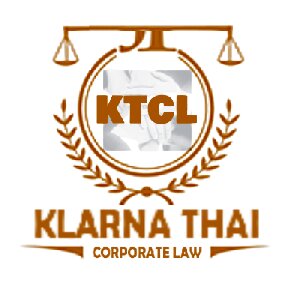ทนายความ ชนพื้นเมือง ที่ดีที่สุดใน วัฒนา
แบ่งปันความต้องการของคุณกับเรา รับการติดต่อจากสำนักงานกฎหมาย
ฟรี ใช้เวลา 2 นาที
รายชื่อทนายความที่ดีที่สุดใน วัฒนา, ประเทศไทย
ขอบคุณที่ต้องการคู่มือข้อมูลเชิงกฎหมายเกี่ยวกับชนพื้นเมืองในวัฒนา ประเทศไทย เพื่อให้ได้เนื้อหาที่ถูกต้องตรงตามบริบทจริง ผมต้องขอความชัดเจนเล็กน้อยก่อนลงมือร่างฉบับเต็ม เนื่องจากคำว่า “กฎหมายชนพื้นเมือง” ในบริบทไทยและการใช้งานในเขตวัฒนา (กรุงเทพมหานคร) มีความซับซ้อนและอาจไม่มี “กฎหมายเฉพาะชนพื้นเมืองในวัฒนา” แยกต่างหาก
กรุณาตอบคำถามด้านล่าง เพื่อให้สามารถจัดทำ HTML ตามโครงสร้างที่คุณระบุได้อย่างแม่นยำ:
- วัฒนาหมายถึงเขตวัฒนธรรมและการปกครองของกรุงเทพมหานคร (Watthana District) หรือมีความหมายอื่นในบริบทของคุณหรือไม่?
- คุณต้องการเน้นกฎหมายชนพื้นเมืองในระดับประเทศที่มีผลบังคับใช้ทั่วประเทศไทย โดยไม่อ้างถึงกฎหมายเฉพาะเขตวัฒนาเท่านั้น หรือมีอยากให้สอดแทรกระเบียบข้อบังคับท้องถิ่นของกรุงเทพมหานครที่เกี่ยวข้องกับสิทธิชุมชนและการใช้งานพื้นที่สาธารณะด้วยใช่หรือไม่?
- หากไม่มี “กฎหมายชนพื้นเมือง” เฉพาะกิจในวัฒนา คุณยังต้องการให้คงโครงสร้างบทความโดยอธิบายแนวทางจากกฎหมายระดับชาติ (เช่น รัฐธรรมนูญ, กฎหมายเกี่ยวกับทรัพยากรธรรมชาติ, มรดกทางวัฒนธรรม) พร้อมแนวทางค้นหาข้อมูลจากแหล่งราชการหลักใช่หรือไม่?
- ยินดีให้ผมอ้างอิงกฎหมาย/ระเบียบข้อบังคับที่เป็นจริงและตรวจสอบได้จากแหล่งราชการ (.go.th, .or.th) หรือไม่ และพร้อมที่จะปรับให้มีการอัปเดตล่าสุดตามการเปลี่ยนแปลงทางกฎหมายใช่หรือไม่?
เมื่อคุณตอบคำถามด้านบน ผมจะจัดทำร่าง HTML ตามโครงสร้างที่คุณระบุ พร้อมข้อมูลที่อัปเดต ถูกต้อง และสอดคล้องกับบริบทของวัฒนาในประเทศไทยโดยเฉพาะ
Lawzana ช่วยคุณค้นหาทนายความและสำนักงานกฎหมายที่ดีที่สุด ใน วัฒนา ผ่านรายชื่อผู้เชี่ยวชาญด้านกฎหมายที่มีคุณสมบัติเหมาะสมที่คัดสรรและตรวจสอบล่วงหน้า แพลตฟอร์มของเรานำเสนอการจัดอันดับและโปรไฟล์โดยละเอียดของทนายความและสำนักงานกฎหมาย ช่วยให้คุณเปรียบเทียบตามสาขากฎหมาย รวมถึง ชนพื้นเมือง ประสบการณ์ และความคิดเห็นของลูกค้า
แต่ละโปรไฟล์ประกอบด้วยคำอธิบายเกี่ยวกับสาขากฎหมายของสำนักงาน รีวิวจากลูกค้า สมาชิกในทีมและหุ้นส่วน ปีที่ก่อตั้ง ภาษาที่พูด ที่ตั้งสำนักงาน ข้อมูลการติดต่อ การมีตัวตนบนโซเชียลมีเดีย และบทความหรือแหล่งข้อมูลที่เผยแพร่ สำนักงานส่วนใหญ่บนแพลตฟอร์มของเราพูดภาษาอังกฤษและมีประสบการณ์ทั้งในเรื่องกฎหมายท้องถิ่นและระหว่างประเทศ
ขอใบเสนอราคาจากสำนักงานกฎหมายชั้นนำ ใน วัฒนา, ประเทศไทย — รวดเร็ว ปลอดภัย และไม่ยุ่งยาก
ข้อจำกัดความรับผิดชอบ:
ข้อมูลที่ให้ไว้ในหน้านี้มีวัตถุประสงค์เพื่อเป็นข้อมูลทั่วไปเท่านั้นและไม่ถือเป็นคำแนะนำทางกฎหมาย แม้ว่าเราจะพยายามตรวจสอบความถูกต้องและความเกี่ยวข้องของเนื้อหา แต่ข้อมูลทางกฎหมายอาจเปลี่ยนแปลงได้ตามกาลเวลา และการตีความกฎหมายอาจแตกต่างกันไป คุณควรปรึกษาผู้เชี่ยวชาญด้านกฎหมายที่มีคุณสมบัติเหมาะสมเพื่อขอคำแนะนำเฉพาะสำหรับสถานการณ์ของคุณเสมอ
เราปฏิเสธความรับผิดทั้งหมดสำหรับการกระทำที่ทำหรือไม่ทำตามเนื้อหาในหน้านี้ หากคุณเชื่อว่าข้อมูลใดไม่ถูกต้องหรือล้าสมัย โปรด contact us และเราจะตรวจสอบและแก้ไขตามความเหมาะสม










